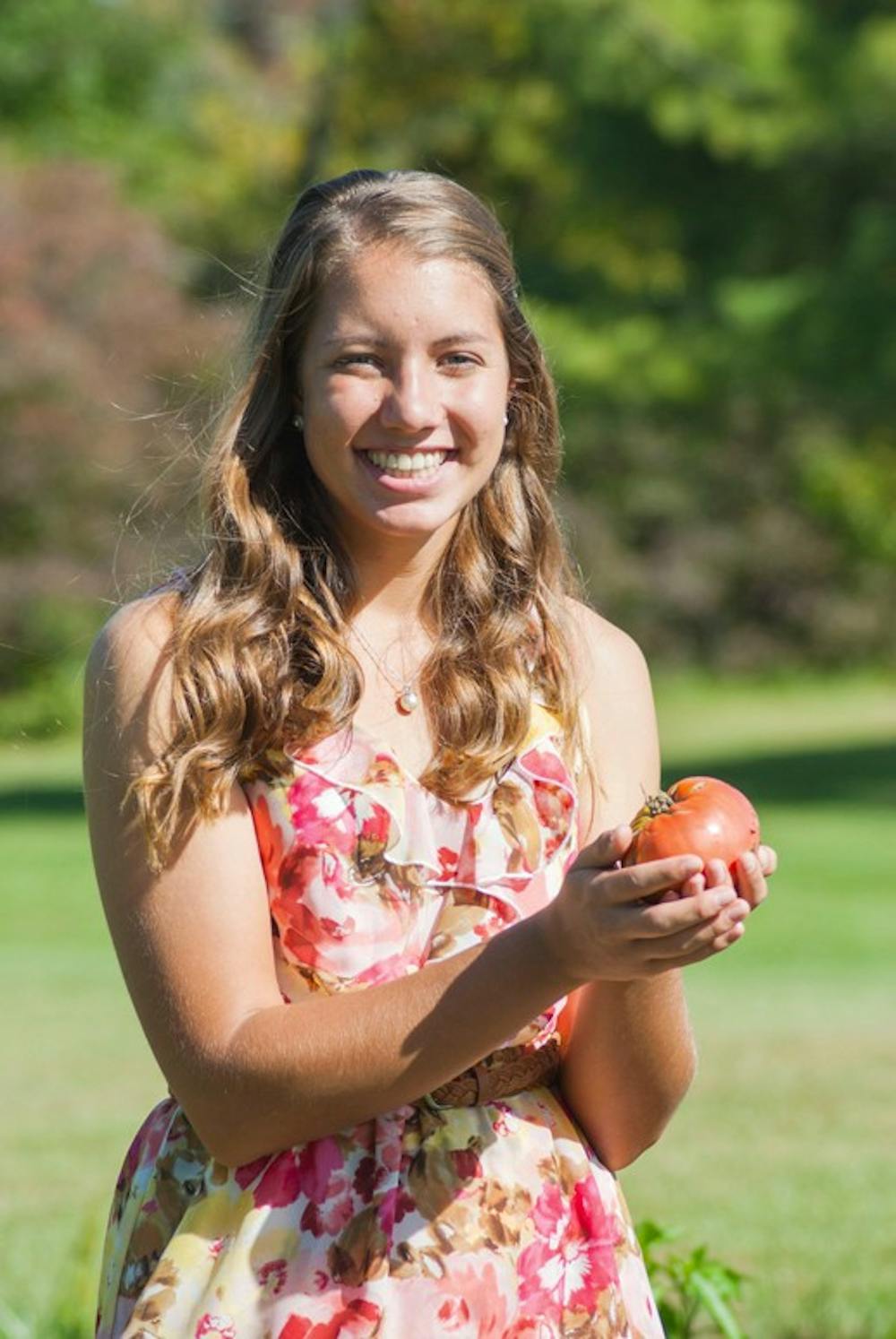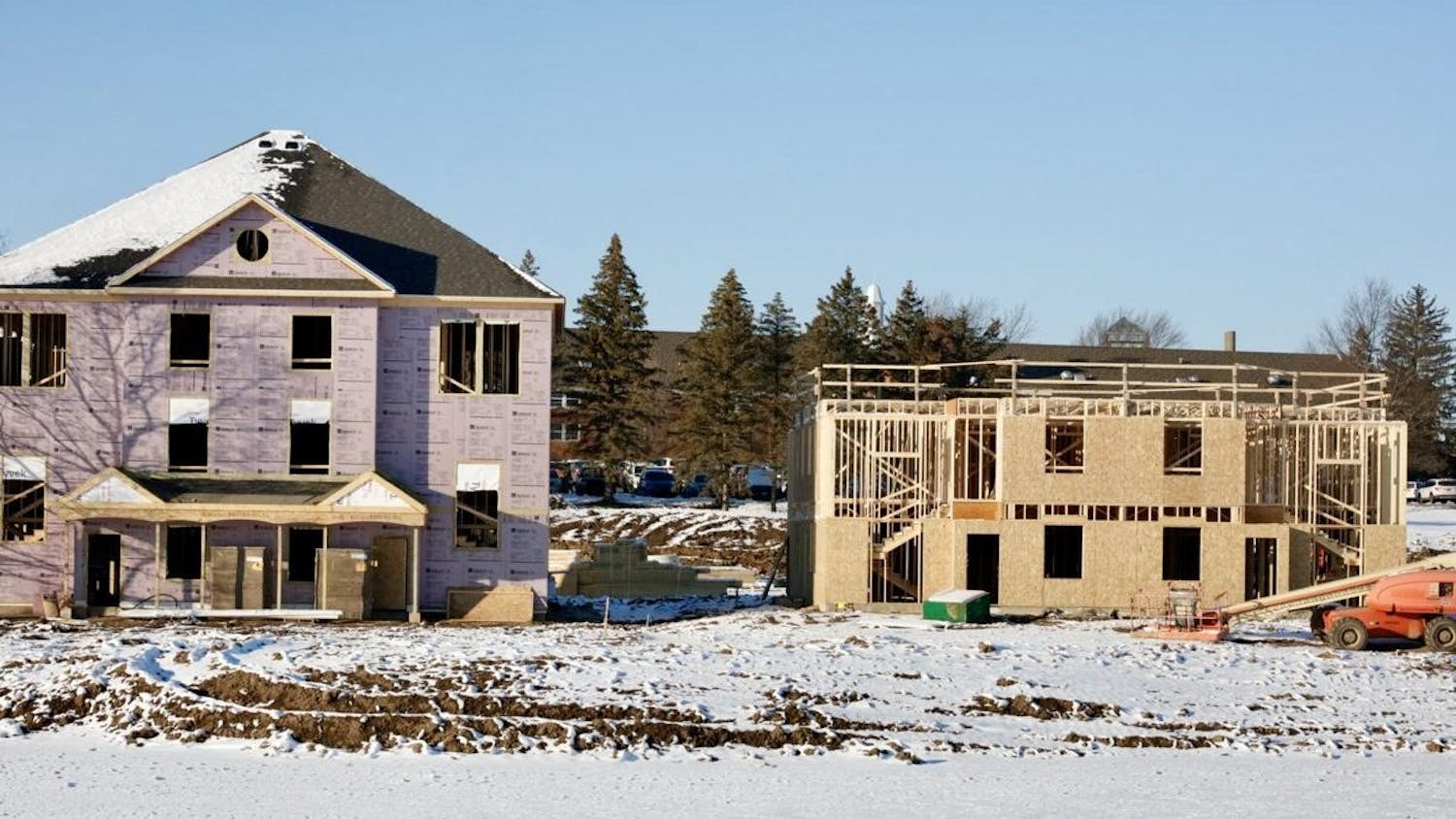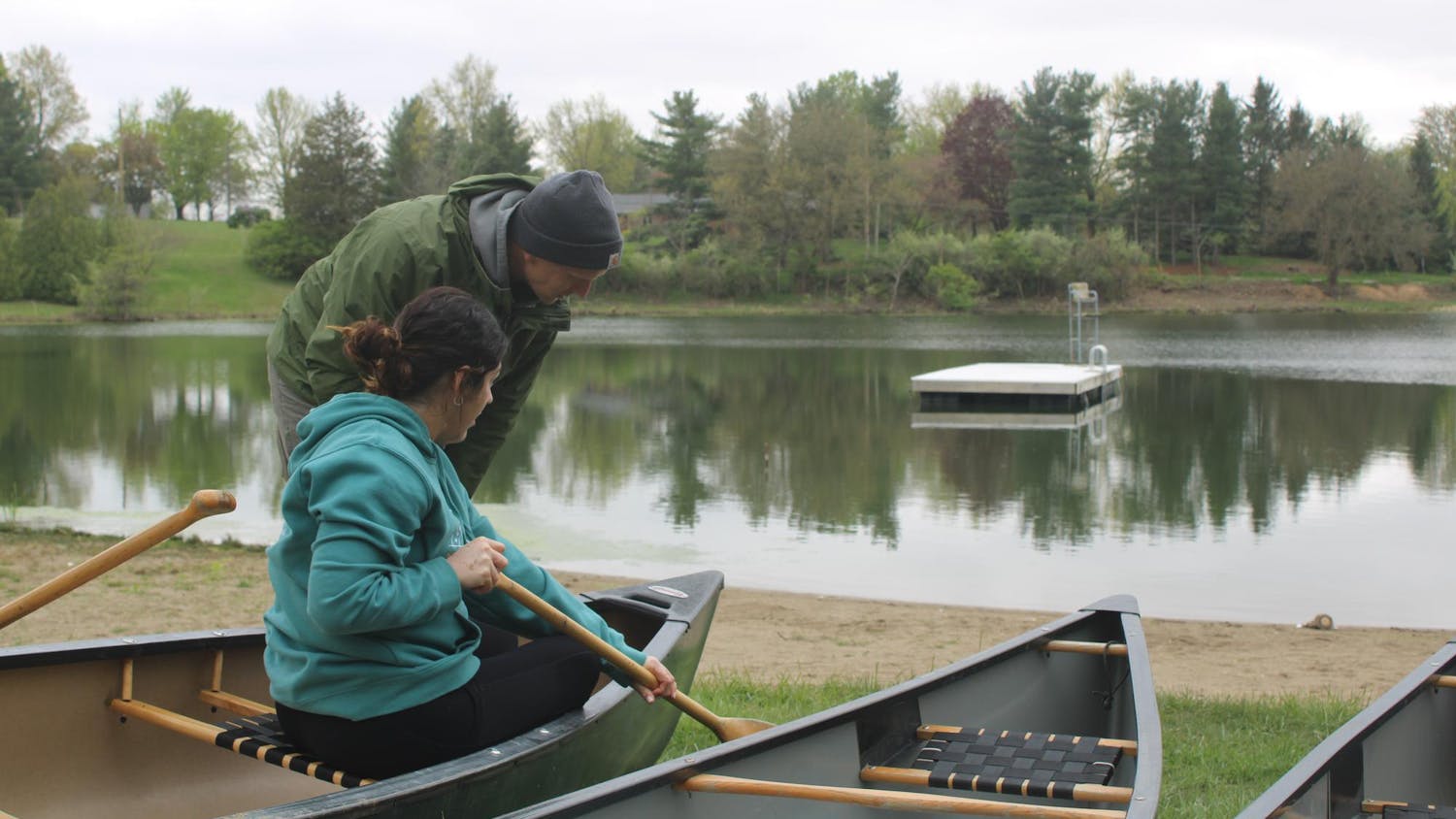By Ellen Hershberger | Echo
Some know it by sight as they walk to Randall. Others have stuck their hands in its dirt to pull weeds as volunteers during Community Plunge. But what many students don't know is that they have eaten its produce in our very own DC.
According to the chair of the Earth and Environmental Science Department (EES), Michael Guebert, the Taylor campus garden hopes to provide a reliable source of produce for Taylor dining, demonstrating the concept of sustainable farming. Though the garden cannot grow enough produce to meet all the DC's needs, the goal is to promote healthy living and help students understand how the food system works. It also serves to raise awareness of global issues such as food security and famine.
In addition to chairing the EES department, Guebert oversees the educational development of the campus garden. He described the department's motive behind supplying the DC with produce.
"There are many students who are interested nowadays to learn how to garden because over the last few decades people have become progressively more separated from their food source," Guebert said. "We want to promote connecting people with their food sources."
This is just a small part of the vision for the four small plots that make up the campus garden.
Nicholas Babin, assistant professor of ESS, is a new addition to the Taylor staff this year. He views the garden as a living laboratory. It will be integrated into the curriculum of several courses offered here, including systems ecology, hydrology and other classes in EES. Students will receive hands-on educational experience through studying the garden.
In addition, Guebert hopes to implement aquaponics, or fish farming, at the garden. The fish's excretions will fertilize the plants, which filter fresh water into the fish tanks. If this is installed in the campus greenhouse, fresh greens could be grown in the winter as well as the summer. According to Babin, it's a great way to use the resources Taylor already possesses.
Until the last harvest, funding was minimal and volunteers scarce. So, to maintain the garden and make these visions a reality, the program seeks additional finances.
Currently, the garden is supported by the Grant County Community Foundation, Indiana Campus Compact and the Lilly Endowment Community Program. A grant proposal has been submitted to the Women's Giving Circle program to receive funding in the near future. These funds would also allow for additional paid internships for undergraduate students to learn garden management, though the main vision leans toward the educational aspect.
"Raising up future farmers is not really our focus," Babin said. "It's more (about) using the garden as a teaching tool to talk about other issues in the food system."
To get the word out about the campus garden, junior and campus garden manager Mackenzie Miller is hosting an open house on Oct. 18. Visitors can tour of the garden, hear a description of its purpose and taste its produce. In the spring, volunteers will be needed to plant more produce.
Babin's hope for the garden is that it will become more popular among the Taylor community for teaching principles of sustainable farming.
"The garden is an entryway into learning about the broader issues," Babin said.





